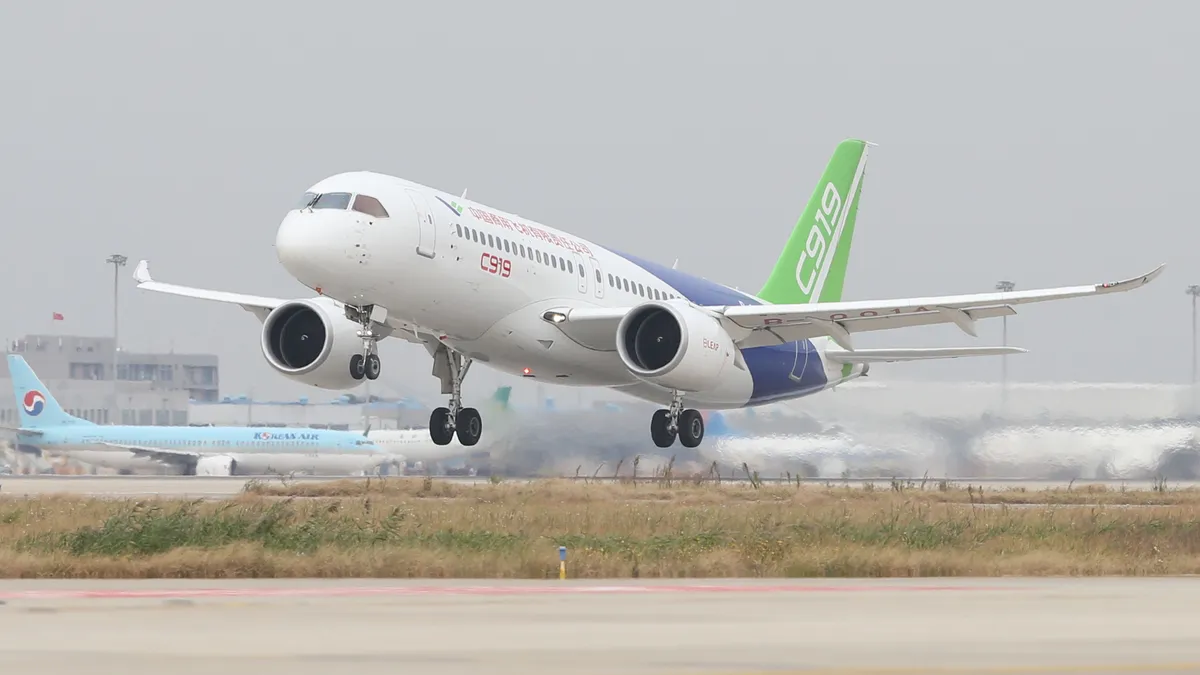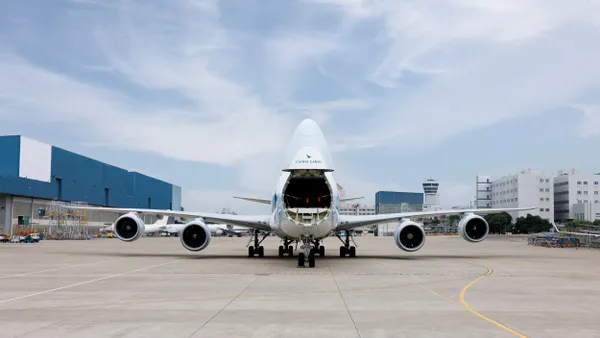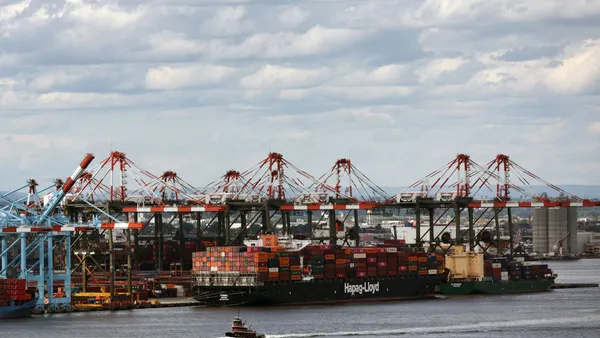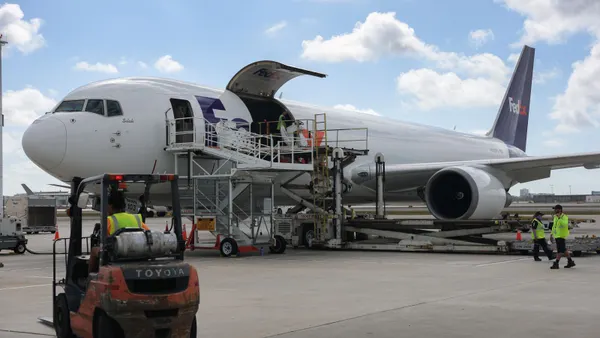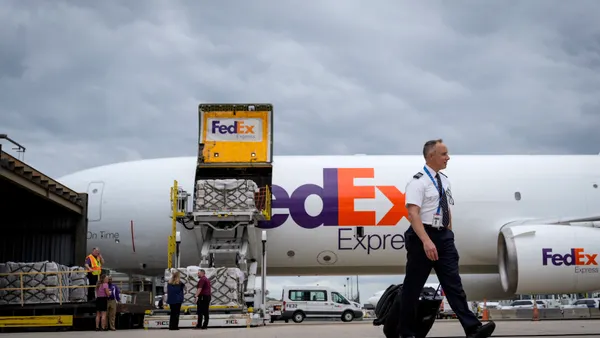Dive Brief:
- COVID-19 lockdowns in China squeezed air cargo capacity at Shanghai Pudong International Airport last month, with available space for international shipping in early April reduced to roughly one-third of 2021 levels, according to Accenture.
- Air cargo providers have canceled flights as travel restrictions have led to a lack of truck availability, preventing carriers from unloading freight or being loaded with outbound freight on time, Spencer Shute, senior consultant at Proxima, said in an interview.
- Flight capacity in Shanghai has increased in more recent weeks, but it remains constrained due to a lack of demand spurred by lockdown measures, according to a May 3 market update from Flexport. "Airlines have reduced rates this week as the market outlook is expected to be slow during the long [Labor Day] holiday," the update reads.
Shanghai Pudong International Airport capacity plummets after lockdowns
Dive Insight:
April was a difficult month for supply chains connected to China, and more turmoil looms as Shanghai authorities have tightened the city-wide lockdown with measures set to last into late May, Reuters reported Sunday.
The restrictions have led Ford to secure airlift capacity and fast maritime shipping to alleviate supplier disruptions, despite the higher cost. But a mass shift to airfreight isn't easy even for shippers that can afford it, due to the strain lockdowns have put on transportation overall. DB Schenker said in an April 26 customer update that despite the opening of highways connected to Shanghai Pudong, trucking availability was still limited.
"All major ports in China are facing extreme backlogs of import cargo," the update reads. "Some of the ports are introducing penalties for airlines who are not able to clear import cargo within 48 hours from the tarmac. This results in many airlines canceling flights or substantially reducing inbound capacity."
Diverting outbound freight from Shanghai to alternative airports isn't a surefire solution, either. Export volume has shifted to North China, but airports have encountered backlogs "and rates have increased a lot," per an April 29 update from Crane Worldwide Logistics.
These airports "are not really able to accommodate the volumes out of Shanghai," Paul Mullins, Chief Revenue Officer at Xeneta, said in an April webinar. Shanghai Pudong was the third-busiest cargo airport in 2021, according to Airports Council International, despite freighter suspensions that occurred due to COVID-19 cases among cargo workers last year.
China's COVID-19 restrictions have led some companies to minimize their supply chains' exposure to the country's lockdowns. Tempur Sealy is diversifying its sourcing as some of its suppliers face factory closures.
The lockdowns will spur companies to evaluate their global supply chains as a whole and find ways to minimize further disruption, if they haven't already, Shute said.
"What supply chain managers need to be looking at is how do we build that resilience in," Shute said. "There may be a little bit of reshoring or nearshoring, but it's not going to be an all-or-nothing type solution."



